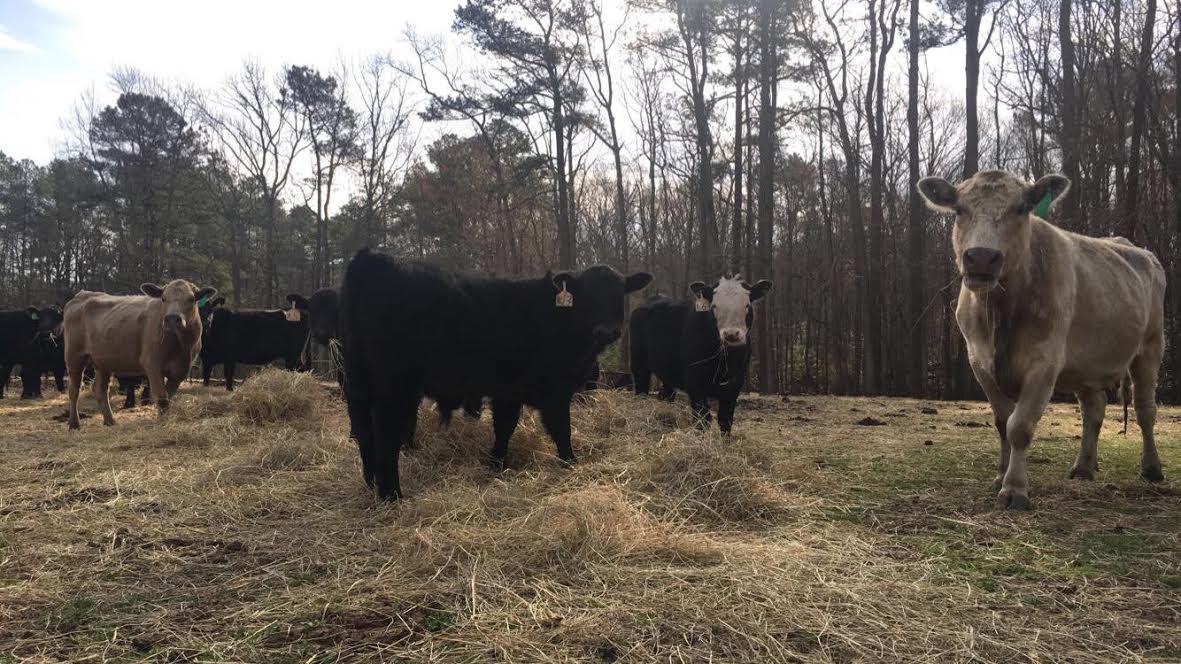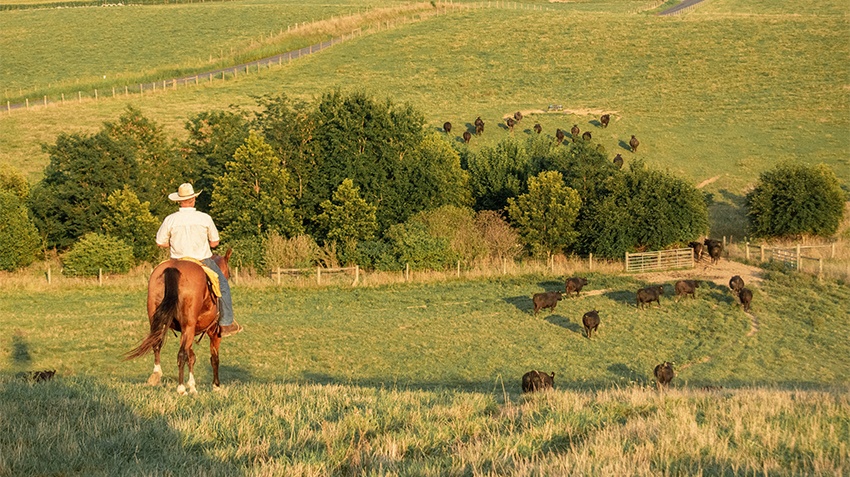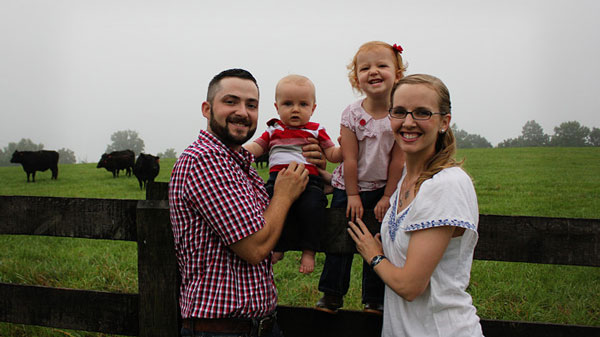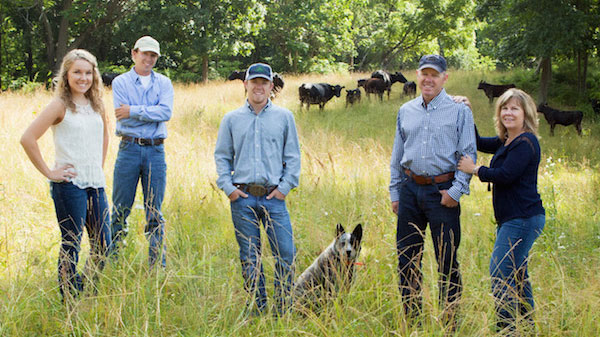
The Repress Family - Twin Spring Farm
Robert was on the tractor in the distance bringing hay to cattle and horses on the farm when I arrived for the interview. He greeted me a few minutes later at the same time I was getting a welcoming greeting from the farm dogs. Robert was just getting started for the day, but was happy to stop and share with me his participation in sharing beef cattle. -MacKenzie Moore
VBC: Tell me about yourself and Twin Springs Farm
Robert: Twin Spring Farm has been in operation for 100 years. It is located in the Eastern portion of the state, in Mathews County, Virginia. On our operation we maintain a small 25 head herd of beef cattle. We also have a grain operation that consist of around 350 acres of corn and 450 acres of soybeans. With us being located in the eastern part of Virginia, livestock operations are almost obsolete. Thankfully, we have managed to hold on and work with cattle. My wife Tracey and two daughters, Katherine and Coleman, are also a big help on the farm when needed. They always step in when I need them to better get a job completed.
VBC: Sounds like the whole family is involved!
Robert: It's great -- When you see the impact you are making, and see how you can raise your family on a farm, it is very rewarding. I started back in the 80's in the beef industry. The relationships I have been able to build with other producers has been a great experience and has helped me with my own herd. I would say beef production is also great because as producers, we are all raising safe beef. It is awesome to be part of an industry that really does care about the health of their animals and wants to educate the communities.
VBC: It sounds like in your area of Virginia in particular, the communities may need more education since there aren't many cattle. How would you educate them on sustainability and the use of technology on farms today?
Robert: To me, sustainability means that I need to maintain my herd's health. I have had many people guiding me over the years to ensure I knew what it was going to take to be a successful beef producer. Technology on our farm is mostly used with the grain portion [of our operation], as we have technology within our tractors and other machinery. For our cattle, I would say that technology is using updated handling facilities and updated pasture pens.
VBC: Updated facilities certainly keep cattle safe and happy. Share with us something else you feel is unique about your operation.
Robert: I believe that because we are located so far to the east of the state, that we are a unique beef operation. There are not many beef producers in this part of the state, so we take pride in still having a small herd on our farm. We sell our beef cattle and haul cattle to the Shenandoah Valley of Virginia [One of the largest cattle regions of the state].
VBC: If beef cattle aren't common in your area, why is beef production what you do?
Robert: Beef production is what I do because I enjoy the relationships I have built over the years. Raising beef cattle has allowed me to meet a lot of people within the agriculture industry. Through meeting new producers and conversing with consumers, I am always able to take something applicable from our interactions [back to the farm].
VBC: How do you participate and play a role in producing high-quality beef, and what's your favorite way to enjoy beef at home?
Robert: To produce quality beef, we are careful not to use medication or antibiotics in our cattle unless it is needed. We do regularly vaccinate [to prevent illness]. We have a herd health plan to ensure we stay on track with preventing issues within our herd as well as how to treat cattle that need it. We also ensure our cattle are getting a proper diet to maintain healthy weights so they are successful with breeding and delivering their calves.
I prefer a good t-bone steak, grilled with a little seasoning. It doesn't need a lot of seasoning if it is good beef - quality beef already has good flavor.


